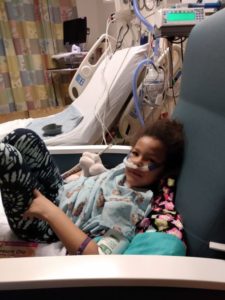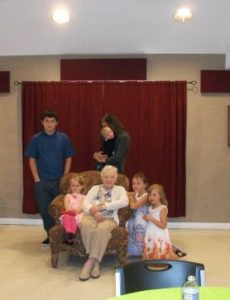People often lean toward traditional expectations of traditional holidays. We expect them to unfold in predictable ways. It’s not just, for instance, that we know we should be thankful on Thanksgiving, but also that we have family traditions of a feast with certain preparations and foods and activities that are all part of what we anticipate. We relax with pleasure when we are able to follow the script.
Last year, seven months into a pandemic the likes of which our society had not experienced in an entire century, our expectations were tempered by the need for limited crowds and our awareness of those who had succumbed to COVID-19 who could no longer share a meal with us. This year, many of us reverted to accepting somewhat larger crowds, tempered by issues of who was vaccinated, but sought nonetheless to recover as much of that traditional script as situations allowed.
No one likes to have the holiday disrupted by sudden illness. I recall a Thanksgiving in 1990, when my wife and I were still relatively new residents of Chicago, because I suffered sudden illness. I don’t recall how I felt the night before, but I woke up that morning with a fever that reached 103°F., accompanied by some other miserable symptoms. I was in no condition to go anywhere or meet anyone. Jean simply ushered me to the car and took me to a hospital emergency room. Following x-rays, the doctor informed me I had pneumonia. He sent me home with antibiotics, and the next few days, as I recall, were less than inspiring. I was listless and tired, and I learned that pneumonia is an exhausting disease. I got it twice more in the next ten years or so, but never again.
On Wednesday of this past week, our daughter Jessica and her new husband Greg and their four kids arrived, but the youngest, Marybella, 7, was not faring well, coughing up mucus. Her behavior wavered between fatigue and her usual effervescent enthusiasm. Jean suspected something was wrong. On Thanksgiving morning, Jean convinced Jessica to let her take Marybella to a nearby emergency room, where she spent all most of the day. She updated us by phone. The doctors tested for COVID and ruled it out, as they did subsequently for respiratory syncytial virus (RSV). They ultimately concluded it was pneumonia and arranged for her transfer to Lurie Children’s Hospital. Jean joined her in the ambulance. Jessica took me to the first hospital, where I retrieved our car as well as the purse Jean left behind when she rushed into the ambulance.
The other nine of us, including Jessica, proceeded with a mid-afternoon dinner at Jean’s insistence, but afterwards I drove to Lurie to pick up Jean, and Jessica and Greg followed. They stayed overnight with Marybella, who occasionally got the chance to talk to her siblings by phone, and then stayed most of Friday. Jean ate a pick-up dinner of the ample leftovers once she was back home for the night.
That could have put a damper on Thanksgiving, and to some extent it did. We were all quite naturally worried about Marybella. Jean reported that she was in a critical care unit, with a doctor and nurse stationed outside her room. A playful kid, Marybella sometimes rang the bell that signaled a need for help just to try it out until the nurse made clear to her that it was not a toy and she should not use it as one. Despite a heart rate reaching 170, possibly a result of panic during episodes of difficult breathing, her lively attitude was still apparent.
Jessica reported that Marybella also expressed gratitude toward her brothers and sisters, grandparents, and everyone around her. Being hospitalized, with all the attendant tests and medicines, has a way of focusing a young mind on the people who are helping her endure a crisis.
Not that she and her siblings have lacked reason for grief and anxiety this year. Their father died in ambiguous circumstances in late February. Like other students across the nation, they were attending school remotely at the time. They moved and changed schools in the fall. Life has been rather unstable, but they are seeking to regain their bearings.
Marybella’s challenge made me think hard about my own perspective in recent days. I have been busy, which is one explanation for a lack of recent blog posts. I was approached in early November with a new short-term consulting assignment that needed to be completed by the end of the month. That pressure was lifted slightly this past week with the extension of a federal agency deadline, but I have other work that will easily occupy my time until mid-December and perhaps beyond. I had looked at Thanksgiving as a chance to relax for just a day or two, but that was not going to happen.
As if one illness were not challenging enough, the parents took another daughter, Shanaila, to the Lurie emergency room on Friday evening, bringing her home at 5 a.m. Saturday after doctors determined she has strep throat and prescribed antibiotics. She slept well into the afternoon. What a weekend.
Meanwhile, we had five teens and tweens in the house needing attention while Jessica and Greg spent time with Marybella. On Friday morning, I found an intriguing idea in the Chicago Tribune, which included, in its Arts & Entertainment section, a glowing review of King Richard, a new movie about Richard Williams (played by Will Smith), the outlandishly ambitious father of international tennis stars Venus and Serena, who defeated the odds associated with raising five daughters in impoverished Compton, California. The movie has been billed as a tribute by the daughters to their persistent but deeply principled father. I consulted with Jean, and we decided it was a good bet for entertaining the kids in the late afternoon.
When I announced that we would attend a movie after they helped us clean the house, the first reaction was a question: What movie? This is a gang still hooked on Marvel Comics and superhero films, so there was puzzlement when I mentioned King Richard, a movie they had not even heard of. But Lashauna, a high school freshman, mentioned she had done some sort of school project about Serena Williams, although she still thought the idea behind the movie sounded “lame.” A movie about the father of two tennis players promised none of the high-powered action and special effects of the Batman and Superman films that dominate the box office.
“Just try it,” I said. “It might be better than you think.” Even a “lame” movie, however, provided adequate motivation to help clean a room or two in exchange for a trip to the local theater.
King Richard, in fact, has dramatic action. Williams defends his daughters by confronting gang members in the ghetto, gets beaten up more than once, but steadfastly pursues his audacious plan to turn his daughters into world champions with the help of coaches persuaded by his determination and, more importantly, the dynamic talents of Venus and Serena. The movie ends after Venus, at 14, nearly defeats the reigning top seed in her first major tournament, attracting enormous media attention and rich corporate sponsorships. Despite family squabbles, the gratitude of the two daughters for their father’s overarching vision for their futures becomes the dominant outcome of the story.
Once we were back home, with Marybella still in the hospital fighting to regain health—she suffered some lung damage at birth that complicates matters—and with the parents staying with her for a second night, I asked what they all thought of the movie and why they liked it. Lashauna admitted it was a good movie and that her assessment that it was “lame” was premature. Her sister Shanaila liked the fact that Venus became the first female African American world tennis champion. Jean, a retired teacher, liked the fact that Richard Williams insisted that his daughters get A’s in school as a condition of playing tennis. I simply liked the positive reactions to my choice of movie. Young adults do not alter their perceptions of life in snap decisions. It occurs one movie, one story, one mind-shaping event at a time. As a mere grandfather, I keep trying.
As I write this, I am plugging away at professional and personal tasks in a very different way than I had planned just a few days ago, and my expectations for the coming week remain positive, but tempered by a new experience. I too keep learning something: When God throws you a curve ball, learn how to change your swing. You may adjust enough to hit one out of the park, but you may also learn to be thankful just for reaching first base. You may also learn that gratitude sometimes resembles the smile on the face of a young girl in a hospital bed, fighting pneumonia but happy to be alive.
Jim Schwab


